It is often stated how we ‘eat with our eyes’ – and for business owner Catalina Bañados this statement couldn’t be more true. At her community hub café Catacolours, you’ll find no end of dishes packed full of vibrant colours and South American goodness.
But it’s much more than just food on a plate that Catalina has injected into the Bristol based business that feels more like an extended family home than a transactional eatery. Bringing her Chilean roots to the café, Catacolours is synonymous with a home-grown culture, something that has been with Catalina since childhood.
She states how “I always enjoyed being around food, it is something my family enjoy and I was growing quite a passion for cooking myself at a young age. I remember when I was twelve it was all I wanted to do!” It is a testament to passion, to how far a keen interest can take someone if they really believe in themselves and are willing to work for it, that this familial allure to being around and cooking food can literally bring a person across the world.
Catalina “moved over to the UK in 2003 and initially worked as a chef at a Brazilian and Italian place, also in a couple of English cafes” where she was able to soak up knowledge and techniques from working with a variety of chefs and colleagues. It has by no means been a quick journey to becoming the business owner she is now, and she openly admits there was a lot of learning to be done on the way.
To immerse herself in various food environments and kitchens of alternate standing has served this journey really well. There is a lot that goes into each customer’s experience, and with running a business it’s “some of the small things like the techniques in the kitchen and the preparing of dishes that I found so useful, some are things that help me so much with running my kitchen now.”
Working for someone else in a hospitality business can yield a lot of experience and learning, but was always going to be a lily pad to leap from for Catalina, who recognised that this kind of lifestyle can be a lot of “hard hours for not so much pay”. Always a brave character, after gaining what she could from the kitchens of others, it was time to seek independence and strike out on her own.
To start from scratch and put all belief in working for yourself is a daunting prospect, but having the entrepreneurial spirit in her family certainly helped negate these woes: “my mum created her own business, and my sister is a florist – she worked before in a different job but then set up on her own so has her flower shop – they both inspired me and gave me the confidence to believe I could do it. So I asked myself, if they have both done it, why can’t I?”
It is exactly this positive outlook that saw Catalina begin to bring homecooked South American delicacies to markets on the outskirts of Bristol. Having lived in the city she was accustomed to how diverse it is celebrated to be, and thought astutely “if I went a bit further afield I could be offering something unique to these markets and hopefully see if people want to try something new.” This hope was actualised and her stalls went down a hit at the markets, although things took time to get going at the start.
One key ethos Catacolours always carries is about the power that food has to “unlock memories for people” – this is exactly what was so brilliant about selling on the market stalls: Catalina describes “meeting people who had been to South America, who ate the foods with me that they had enjoyed on their travels and it brought those memories back.” Food is a great connector of people, it is symbolic of culture and heritage and often represents a lot more than the assorted nutrients sat on a plate – selling her cuisine on the stall brought people that “would come and talk to me in Spanish, and it was great to meet other South American people living here who were happy at seeing some empanadas!”
Sure, any successful business has to operate profitably and be able to generate an income, but it is the impact of the business that stays with people. To deliver a slice of home for fellow natives who have travelled so far just as Catalina has, is a truly wholesome and priceless experience to be able to provide. The currency of nostalgic smiles is always a wealthy one.
And sure enough, as those smiles spread across faces, so too did word of mouth regarding the quality foods Catalina was offering spread around Bristol. For one weekend every year, a community-led art initiative sees artists all over the city open their houses up and mark themselves on the map for the Art Trails that take place. Bringing together creatives and giving them a chance to put themselves and their works on display, the event is celebrated widely.
Catalina, who was partaking in the event herself with some homemade jewellery on display, knew someone taking part who as an artist had converted rooms in his house into studio spaces and let others make use of them for the Trails: “He wanted someone to cater for it and he got in touch with me to provide some nice cakes, it was so much fun and I think the idea for the café was born there.”
Sometimes these things just fall into place, and with the artist in question also working as a carpenter, the creation of the café was in good hands. One container kitted out with a kitchen later, and from Monday to Wednesday you can find Catacolours there – and yes, as it sounds, the house-extension-café is situated in a residential area. As cafes go, it is as DIY and homely as you could imagine. Furthering the DIY and community ethos, the space is shared by a pair of Italians who operate as Cibomatto on Thursdays, Fridays and Saturdays. They match well with Catacolours, host a lot of events themselves and add more dimension to the diversity of the café.
And it is this very residential setting, that positions Catacolours so poignantly as a community hub. It is not on a high-street competing with monotonous chains, or trying to shout louder than the next independent business for customers – it is a neighbourly home, welcoming all: “We use the street, we have some outdoor seating with tables. As a café, it is quite unique really – it isn’t fancy by any stretch, but we have built up such a sense of community. It is very informal, has become a bit of a meeting point for the neighbours.”
There is no grand pretence at all, it is real people serving real food and offering a place to connect. But culture goes deeper than just prolonging family recipes and convivial settings – Catacolours is nestled in a city of artists, of vibrance, and does it’s best to celebrate that. In her own words, Catalina sees “it more as a community hub than a café really, that is what people call it and it has become.” Many of the clientele include children making their way back from school, as the location is on a cycle path plenty of city riders will drop in for some refreshment, and Catalina prides herself on the ability to be able to help young people and families with her hearty offerings if they need it.
On this note, she admits that “people have said before that I am a ‘feeder’ you know, someone who really likes to feed other people and I think that is true.” Certainly a suitable characteristic to have in order to run your own business, and one that clearly makes what can be long hours and hard work, all the more rewarding.
Tracking the journey of Catalina but also of Catacolours as a business, the growth has been at once organic and vivid – descriptors alone and together of the food Catalina strives to offer.
After all, food, like life itself, is full of colours. People are walking spectrums of the rainbow, we often represent certain colours in our personalities and our brains interpret and respond to colours strongly. The philosophy of Catacolours embodies the wide palette and they don’t offer a dish that is dull in appearance. We are always “more drawn to the vibrant”, and therefore more likely to be wowed by a plate that is full of colourful goodness, just as a lot of healthy organic foods naturally are. On top of this approach, a lot of creativity goes into the meals on offer meaning there is always something fresh and different for customers.
Catalina likens this viewpoint of her food to art: “I always think that cooking is creating, the same as painting is – so why should a dish not be full of colour like a canvas is?” And like with art, any well-dressed canvas needs eyes to witness it – a masterful creation is a shared link between the painter and those who view the work. So too does the plate really connect two people; someone has envisioned the dish and someone comes along to appreciate and consume it.
But the brush doesn’t stop there – there is often a buzz or hive of activity taking place at the community hub café, as Catalina states: “We love to have live music on here too and it’s such a fun time when there is. We get a lot of performances and a lot of different styles played here. One night for example, we have Spanish night with corresponding food and music, then also Latin and Argentinian for example.”
So although you may know what to expect when visiting, it seems no two trips will be the same, and you would be hard-pressed to find boredom at Catacolours.
As alluded to earlier, the success of Catacolours is an endearing testament to the power of will and what an individual can achieve with a bit of belief. And while Catalina herself may have been working in hospitality now for twenty years, she recognises that she’s still learning every day, that you “always need to adapt as things are constantly changing and you never know it all!”
When I asked Catalina what she’s most proud of about running her own business, she answered that it is “creating something from nothing, you start from absolute zero and I did this all on my own. It is a nice feeling, to not need to ask for a job, for help, for anything as I did it by myself. It is something to be very proud of.”
It is more than just something to be proud of, it is everything. And it is not just a business that she has created for herself, but a home for a diverse and dynamic community, a place that will live long in the memory for those who visited, dined, made friends, enjoyed music and more at Catacolours. A place that may well inspire those very visitors, to create and offer a sense of community somewhere themselves, and spread the colours of life and food ever further.
Follow Catalina and Catacolours’ journey here and keep an eye out for other articles featured in Issue 50 of the NCASS Member’s Magazine here.




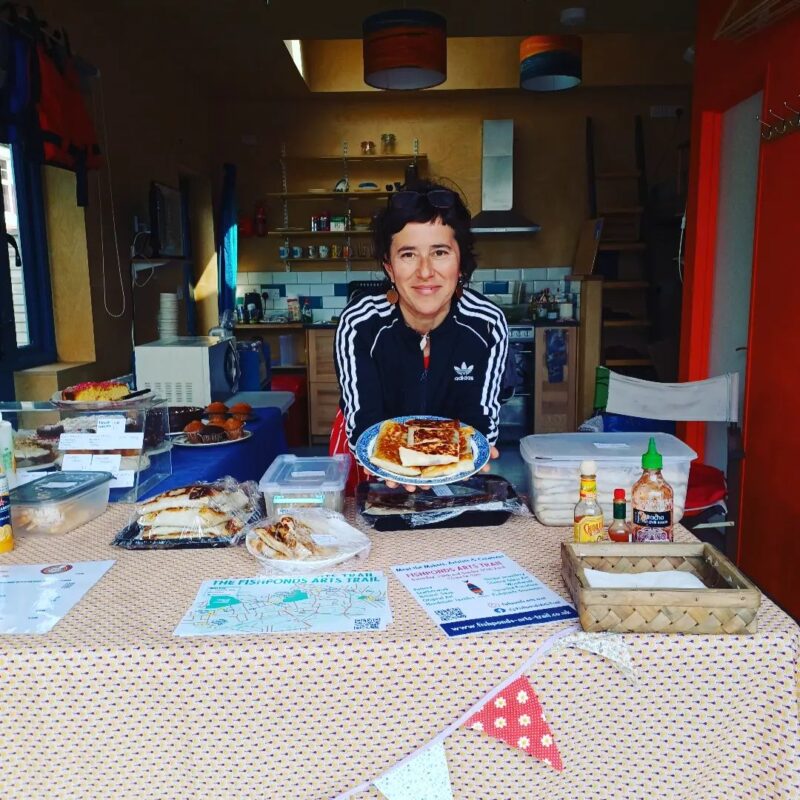
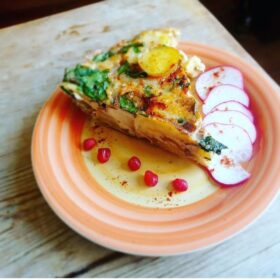
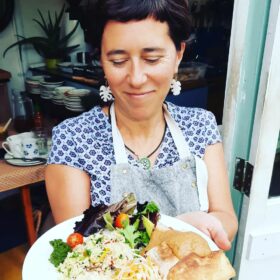
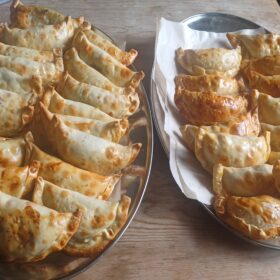
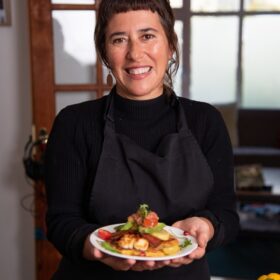
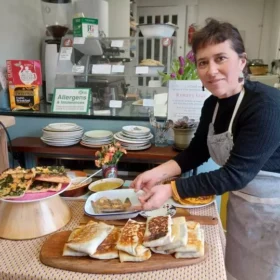

 Featured Training
Featured Training
OUR MEMBERSHIP
We're here to help make your catering business a success. Whether that be starting up or getting on top of your compliance and marketing. We're here to help you succeed.
Want our latest content?
Subscribe to our mailing list and get weekly insights, resources and articles for free
Get the emails